Moksha
Following the conflagration of World War I, Western philosophers struggled to come up with a prescription for spiritual resurrection in the West. Virility was very much on their minds and it's hard to avoid the sexual metaphors in their books. The most pessimistic, Oswald Spengler's Decline of the West (1918), depicts Western culture as doomed. Arthur Moeller van den Bruck's more idealistic The Third Reich followed in 1923 and Hitler's Mein Kampf (My Struggle or My Battle), appeared in 1925-26. During these same years, Freud speculated on the existence of a death drive ("Todestrieb") in all of us, competing with the life-producing drives - notably in Beyond the Pleasure Principle (1920).
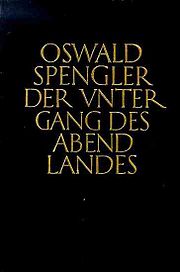
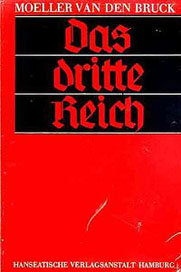
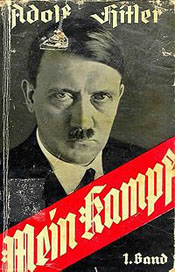
Some took refuge in drugs and the Occult (Aleister Crowley) or in Communism. Others lashed out at the Jews or the Bolsheviks - 1919-1920 was the heyday of The Protocols of the Elders of Zion throughout the West (after being exported from Russia before the Revolution).
Those who were more pessimistic about the West were drawn to the spirituality and virility of the Islamic world, India and China, attempting to step outside time, to find Moksha (deliverance) - like Hermann Hesse in Siddhartha or T.S. Eliot in The Waste Land, "Shantih shantih shantih..." (both 1922) and Albert Schweitzer in his concept of "Reverence for Life" ("Ehrfurcht vor dem Leben"). (Also see Nicholas Roerich in Russia and Puccini in Italy)
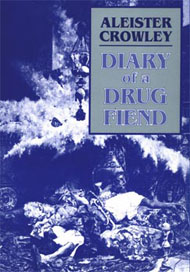
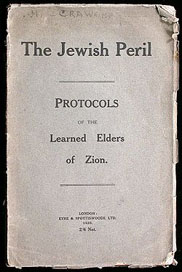
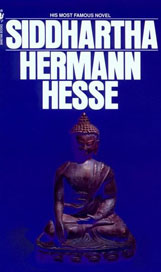
In France, René Guénon gave up on Christianity and other Western alternatives like Theosophy. Fascism never appealed to him. In 1921, he published an Introduction to the Study of the Hindu Doctrines and in 1927 The Crisis of the Modern World. He moved to Cairo in 1930, where he spent the rest of his life as a Sufi Muslim. Married; had 4 kids.
In Italy, Julius Evola began a lifelong fascination with Tantric yoga and Shakti, sexuality and magic. In 1928 he came up with Pagan Imperialism: Fascism in Front of the Euro-Christian Danger, urging the Fascist regime to drop Judeo-Christianity and celebrate Paganism. They didn't... Evola these days is a New Right hero identified with Mussolini's Fascists and with the Nazis, but it was always more complicated than that - he was never a member of the Fascist party and he never fitted in. The title of his most famous book, Revolt Against the Modern World (1934) is revealing - in that he was revolted by the modern world. He never escaped his aristocratic upbringing and he never married. A traditionalist to the end, he was buried on Monte Rosa in the Italian Alps in 1974.
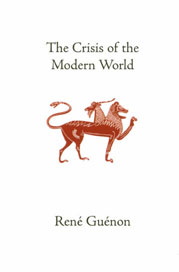
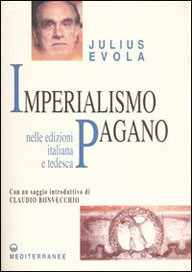
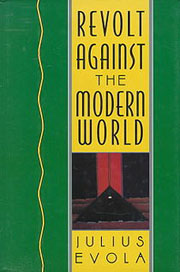
Mountains, rivers, magical symbols... Of course some exotic ideas were hijacked anyway:


